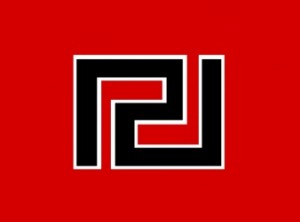-
Herzlich Willkommen im Balkanforum
Sind Sie neu hier? Dann werden Sie Mitglied in unserer Community.
Bitte hier registrieren
Du verwendest einen veralteten Browser. Es ist möglich, dass diese oder andere Websites nicht korrekt angezeigt werden.
Du solltest ein Upgrade durchführen oder einen alternativen Browser verwenden.
Du solltest ein Upgrade durchführen oder einen alternativen Browser verwenden.
Hellenische Denkmale weltweit
- Ersteller Amphion
- Erstellt am
Averoff
Turkish fleet lol
Was sind eigentlich Griechen?
Die Griechen stammen nicht von Griechen ab. Das ist eine historische Wahrheit, die den Griechen insgeheim keine Ruhe lässt, weshalb sie die slawische Minderheit im Norden des Landes immer noch tüchtig triezen und der kleinen Balkanrepublik Mazedonien ihren Namen nicht gönnen. Machen wir es kurz: Am Ende der Antike, um das Jahr 600, brachen die Slawen über das ausgeblutete Hellas herein und besiedelten es. Dann, nach der Eroberung Konstantinopels um 1204, kamen fränkische Kreuzfahrer, ihnen folgten Bulgaren, Serben, Katalanen und schließlich die Osmanen, die ab 1450 auch die Macht übernahmen. Zwischendurch hatten sich noch albanische Stämme in den dünn besiedelten ländlichen Regionen Thessaliens, Böotiens und auf der Peloponnes niedergelassen. Und selbst die entscheidende Schlacht des griechischen Unabhängigkeitskriegs, in der die englische und die französische Flotte 1827 die Marine des Sultans zusammenschossen, fand an einem Ort statt, Navarino, der nach einem fremden Reitervolk, den Awaren, benannt ist. Von dort ging es dann über die Befreiung Thessalonikis - damals mehrheitlich von Türken und sephardischen Juden bewohnt - weiter bis zur kleinasiatischen Katastrophe von 1922 und dem nachfolgenden Bevölkerungsaustausch mit der Türkei, bei dem das kleine Land eineinhalb Millionen Auslandsgriechen aufnehmen und integrieren musste. Jeder vierte heutige Grieche stammt von diesen Zuzüglern ab, ebenso viele haben slawische oder albanische Wurzeln, aber natürlich halten alle zusammen wie Pech und Schwefel, wenn es gegen äußere Feinde geht. Und da die Türken - Rache für Konstantinopel! - gerade nicht zur Hand sind, geben die Deutschen eine ideale Zielscheibe ab. Denn sie haben während des Zweiten Weltkriegs im Mutterland der europäischen Kultur auf eine Weise gehaust, dass man heute noch schamrot werden muss. (Andreas Kilb)
Das müssen Sie wissen:: Alles über Griechenland - Gesellschaft - FAZ
Intressant.
Die Fallmerayer Theorie ist längst widerlegt
This historical continuity
is also proved by the comparison of measurements of the contemporary
inhabitants with those of the ancient skulls of Greece, which
statistically show no differences. Despite the occasional influences
and limited
migrations of populations, the anthropological research has shown that
the population of Greece is basically native and that the contemporary
Greeks
are descendants of the ancient peoples who resided in the Greek
peninsula.
“Over 150 scientists of the University and the Academy of Moscow have
fully agreed with the scientific views of Mr. Aris.
.The
writer of the present study, convincingly and based on analogous
material, showed that whatever the influence of Slavs and other
peoples who came
in contact with the Greeks was, the people of modern Greece is
basically descendant of the ancient population of the Balkans and the
Aegean islands.
From the other side of Atlantic, in USA, the director of the
Smithsonian Institute, G.L. Angel, in a book review of “The origins of
the Greeks” at
the American Journal of Physical Anthropology (No 22, v. 5, 1964, p.
343) writes: Aris Poulianos… correctly verifies that there is a full
genetic
continuity from ancient to contemporary times.
“The scientific study of A. N. Poulianos refutes the dogmatic theory
of the Greek hater,
German historian Fallmerayer, who lived from 1790 to 1861, the time of
the Greek fight for independence. Him (Fallmerayer) altogether
dogmatically, that is without prior anthropological research - and
therefore self-evidently anti-scientifically - tried to support the
theory that Greeks
are mainly Slavs. The researcher (A. Poulianos) ends by mentioning
that the anthropological study, with the necessary historical and
linguistic data,
is necessary for the solution of ethnogenetic problems.
The present is the reflection of the past and in this lays its
historical value. If the past helps us understand the present, the
present helps us meditate
on the future.
https://groups.google.com/forum/#!topic/alt.news.macedonia/f5OIOjy4ILM
Aber eeeh Hauptsache
Screenshot by Lightshot
Screenshot by Lightshot
Hauptsache 35% J2a und G2a in der Ethnogese der Türken :gr2:
Interessant
European Y-DNA haplogroups frequencies by country - Eupedia
Pjetër Balsha
Malësia e Madhe
einst und heute.
da dieses Volk der Griechen einst auf allen Küstenbereichen Europas heimisch war,
wird er sich auch in anderen heutigen Nationen wiederfinden.

nur nicht bei den neugriechen
Averoff
Turkish fleet lol
nur nicht bei den neugriechen
Guck 1-2 Posts weiter oben, da steht alles was die heutigen "Neugriechen" sind. Einerseits verlangt ihr ständig Quellen, andererseits ließt ihr euch die nicht mal durch. Ihr seid echt die geilsten ohne Scheiss
Pjetër Balsha
Malësia e Madhe
da dieses Volk der Griechen einst auf allen Küstenbereichen Europas heimisch war,
wird er sich auch in anderen heutigen Nationen wiederfinden.
da dieses Volk der Griechen einst auf vielen Küstenbereichen Europas heimisch war,
wird er sich auch in anderen heutigen Nationen wiederfinden.
na immerhin hast du anhand deiner karte was dazugelernt
Amphion
Keyboard Turner
na immerhin hast du anhand deiner karte was dazugelernt
Du auch?
App installieren
So wird die App in iOS installiert
Folge dem Video um zu sehen, wie unsere Website als Web-App auf dem Startbildschirm installiert werden kann.
Anmerkung: Diese Funktion ist in einigen Browsern möglicherweise nicht verfügbar.



